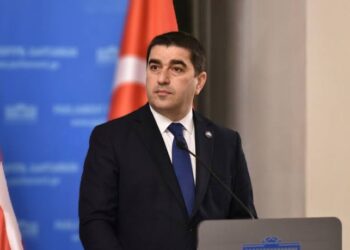Putin is a bad guy – this is the current standard view, held up and repeated by half the world. And while the other half will not readily admit that the guy is good, nor will they insist that he is bad. Only history will make a fair and due judgement upon this mindboggling issue of our time. Take Napoleon: Historically, he is also somewhere between good and bad; Hitler is overwhelmingly thought of in negative terms and colors, although there are people who vehemently defend his good and strong points and repudiate his tragically obnoxious shortcomings; while Stalin’s ruthless dictatorial image, mixed with the suppositions of his conceivable geniality, is still the subject of worldwide controversy.
If Putin’s image and deeds are asking for questions to be answered, then, those questions have to be specifically posed in the first place.
That’s exactly why the world-renowned American man of letters and sounds, Tucker Carlson, embarked on his controversial journalistic stint in Russia, having persistently and determinedly sought for an encounter with the well-known Kremlin resident of consequence. For better or worse, Carlson did his job, having managed to break through the strong and morose walls of the former communist citadel, which, via certain vicissitudes of life, a couple of decades ago turned into something less scary for the rest of the world, but exactly two years back from now, forfeited its newly acquired benign image, having sent the message to the world that nothing has changed and nobody has gone through any transfiguration.
Carlson was so curious to see the Russian leader with his own eyes, and to listen to the famous pariah with his own ears, that nothing could have held him back from risking the venture. Undoubtedly, it was not easy, but it did happen, and with outstanding success. Curiosity didn’t kill Carlson, and he was brought back from the pinnacle of glory with satisfaction, though with a certain number of pitfalls and drawbacks on the way.
The interview itself was OK, not more than that, though it exceeded global expectation. Although he earned every available epithet in spoken English, both agreeable and nasty, Carlson literally turned billions of heads towards Russia and its mysterious boss, in consternation and with a huge question mark as to whether Putin is what the world thought he was, or something else. Indeed, the journalist has definitely helped the Russian leader to make the world think of him in slightly different terms, but of course without an iota of anticipation of altering the dynamics of the extant geopolitical process.
Did Carlson do a good job? Technically, yes, because the deed appeared for all intents and purposes like freedom of speech and democracy in action. Everybody should be listened to, be they liberal or conservative, gay or straight, democrat or autocrat, bully or defender! This is what freedom of speech is all about, and the right of judgement should belong to all society! We are all wise and weathered enough to make our own conclusions and live with it!
Now that time has elapsed since the interview of the century took place, and the feeling of sensation is fading away, the commentary is getting easier to make. Those who wanted to inveigh against Carlson have let off steam, and the journalistic life of the world is back in its normal routine; those who wanted to give him kudos for the high jump are also in their old rut. To tell the truth, many of us envy his amazing ‘fifteen minutes’, but the main question is if we should follow in his venturesome steps. Why not? Courage, skills and smarts, along with knowledge of the ropes, is a huge stock in trade for any journalist. What newscaster would say no to glory and celebrity? Tucker Carlson has no power to change the world, but he can at least make the world think a little differently. If this is true, then we can all be winners.
Op-Ed by Nugzar B. Ruhadze














